Health (110 found)
We Used to Fear Bullets Now We Fear Bulldozers. Dirty coal mining by military cronies & Thai companies Ban Chaung, Dawei District, Myanmar
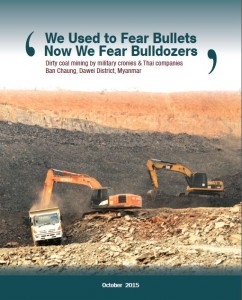 This report was researched and written collaboratively by Dawei Civil Society Organizations and documents the environmental and social impacts of the Ban Chaung coal mining project in Dawei District of Myanmar’s Tanintharyi Region. Based on desk research, interviews with villagers, and direct engagement with companies and government, it exposes how the project was pushed ahead despite clear opposition from the local community […]
This report was researched and written collaboratively by Dawei Civil Society Organizations and documents the environmental and social impacts of the Ban Chaung coal mining project in Dawei District of Myanmar’s Tanintharyi Region. Based on desk research, interviews with villagers, and direct engagement with companies and government, it exposes how the project was pushed ahead despite clear opposition from the local community […]
PERSECUTION OF THE ROHINGYA MUSLIMS: Is Genocide Occurring in Myanmar’s Rakhine State?
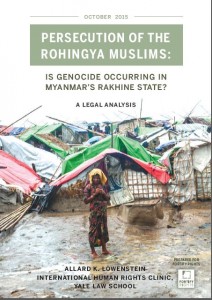 This legal analysis considers whether the ongoing attacks on and persecution of the Rohingya Muslim population in Myanmar constitute genocide, as defined by the 1948 Convention on the Prevention and Punishment of the Crime of Genocide (the Genocide Convention) […]
This legal analysis considers whether the ongoing attacks on and persecution of the Rohingya Muslim population in Myanmar constitute genocide, as defined by the 1948 Convention on the Prevention and Punishment of the Crime of Genocide (the Genocide Convention) […]
COUNTDOWN TO ANNIHILATION: GENOCIDE IN MYANMAR
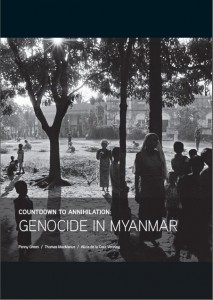 The Rohingya face the final stages of genocide. Decades of persecution have taken on a new and intensified form since mass killings in 2012. The marked escalation in State-sponsored stigmatisation, discrimination, violence and segregation, and the systematic weakening of the community, make precarious the very existence of the Rohingya […]
The Rohingya face the final stages of genocide. Decades of persecution have taken on a new and intensified form since mass killings in 2012. The marked escalation in State-sponsored stigmatisation, discrimination, violence and segregation, and the systematic weakening of the community, make precarious the very existence of the Rohingya […]
Promotion and protection of human rights, Situation of human rights in Myanmar
The Secretary-General has the honour to present to the members of the General Assembly the report on the situation of human rights in Myanmar submitted by the Special Rapporteur on the situation of human rights in Myanmar, Yanghee Lee, in accordance with General Assembly resolution 69/248 […]
• • •Submission to the United Nations Universal Periodic Review on Refugees and Displaced Persons Burma/Myanmar
1. This submission focuses on Burma’s compliance with international human rights obligations in relation to Burma’s refugees and displaced persons safe, dignified and voluntary return. It draws on interviews conducted with a mixture of semi-structured individual interviews and focus groups with refugees from Mae La, Umpiem Mai, Ban Nai Soi, and Mae Ra Ma Luang refugee camps including women, youth and religious minority groups, Mon, Karenni, and Karen civil society groups, ethnic armed groups (EAGs), refugee committees, and international non-governmental organizations […]
• • •JADE: Myanmar’s “Big State Secret”
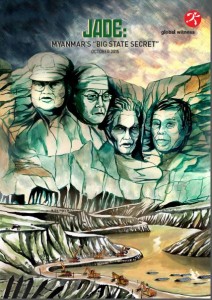 Since 2011, Myanmar’s rebranded government has told the world it is transitioning from a pariah state run by a ruthless military dictatorship to a civilian regime committed to wholesale political and economic reforms […]
Since 2011, Myanmar’s rebranded government has told the world it is transitioning from a pariah state run by a ruthless military dictatorship to a civilian regime committed to wholesale political and economic reforms […]
Myanmar: National report submitted in accordance with paragraph 5 of the annex to Human Rights Council resolution 16/21
1. During the First Cycle of UPR, the promotion and protection of human rights in Myanmar was reviewed on 27 January 2011 at the meeting of the Working Group on UPR […]
• • •Forced Displacements and Destroyed Lives around Upper Paunglaung Dam in Shan State, Myanmar
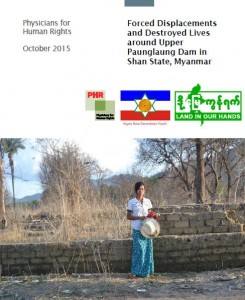 In this report, Physicians for Human Rights (PHR) builds on its previous research on land confiscations in Myanmar by using an epidemiological survey tool to assess the human rights, livelihood, and health impacts on communities displaced by the reservoir created by Paunglaung dam in southern Shan state […]
In this report, Physicians for Human Rights (PHR) builds on its previous research on land confiscations in Myanmar by using an epidemiological survey tool to assess the human rights, livelihood, and health impacts on communities displaced by the reservoir created by Paunglaung dam in southern Shan state […]
Submission to the United Nations Universal Periodic Review: Myanmar
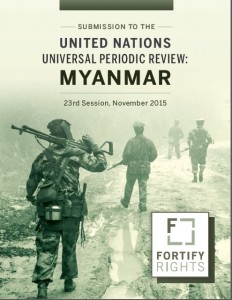 This report was originally submitted by Fortify Rights to the United Nations Office of the High Commissioner for Human Rights on March 21, 2015 for consideration in the Universal Periodic Review (UPR) of Myanmar’s human rights performance, which will take place November 9 at the U.N. Human Rights Council […]
This report was originally submitted by Fortify Rights to the United Nations Office of the High Commissioner for Human Rights on March 21, 2015 for consideration in the Universal Periodic Review (UPR) of Myanmar’s human rights performance, which will take place November 9 at the U.N. Human Rights Council […]
2015 ANNI Report on the Performance and Establishment of National Human Rights Institutions in Asia
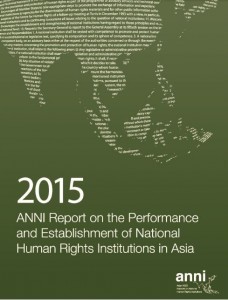 The Asian Forum for Human Rights and Development (FORUM-ASIA), as the Secretariat of the Asian NGO Network on National Human Rights Institutions (ANNI), is glad to present the 2015 ANNI Report on the Performance and Establishment of National Human Rights Institutions in Asia. Our sincere appreciation goes to all 30 ANNI member organisations from across 17 countries in Asia for their participation and commitment to ANNI and continued advocacy towards the strengthening and establishment of NHRIs in Asia. Similarly, we would also like to extend our sincere thanks to the National Human Rights Institutions (NHRIs) that have contributed valuable inputs and feedback to the concerned country reports […]
The Asian Forum for Human Rights and Development (FORUM-ASIA), as the Secretariat of the Asian NGO Network on National Human Rights Institutions (ANNI), is glad to present the 2015 ANNI Report on the Performance and Establishment of National Human Rights Institutions in Asia. Our sincere appreciation goes to all 30 ANNI member organisations from across 17 countries in Asia for their participation and commitment to ANNI and continued advocacy towards the strengthening and establishment of NHRIs in Asia. Similarly, we would also like to extend our sincere thanks to the National Human Rights Institutions (NHRIs) that have contributed valuable inputs and feedback to the concerned country reports […]

 All posts
All posts